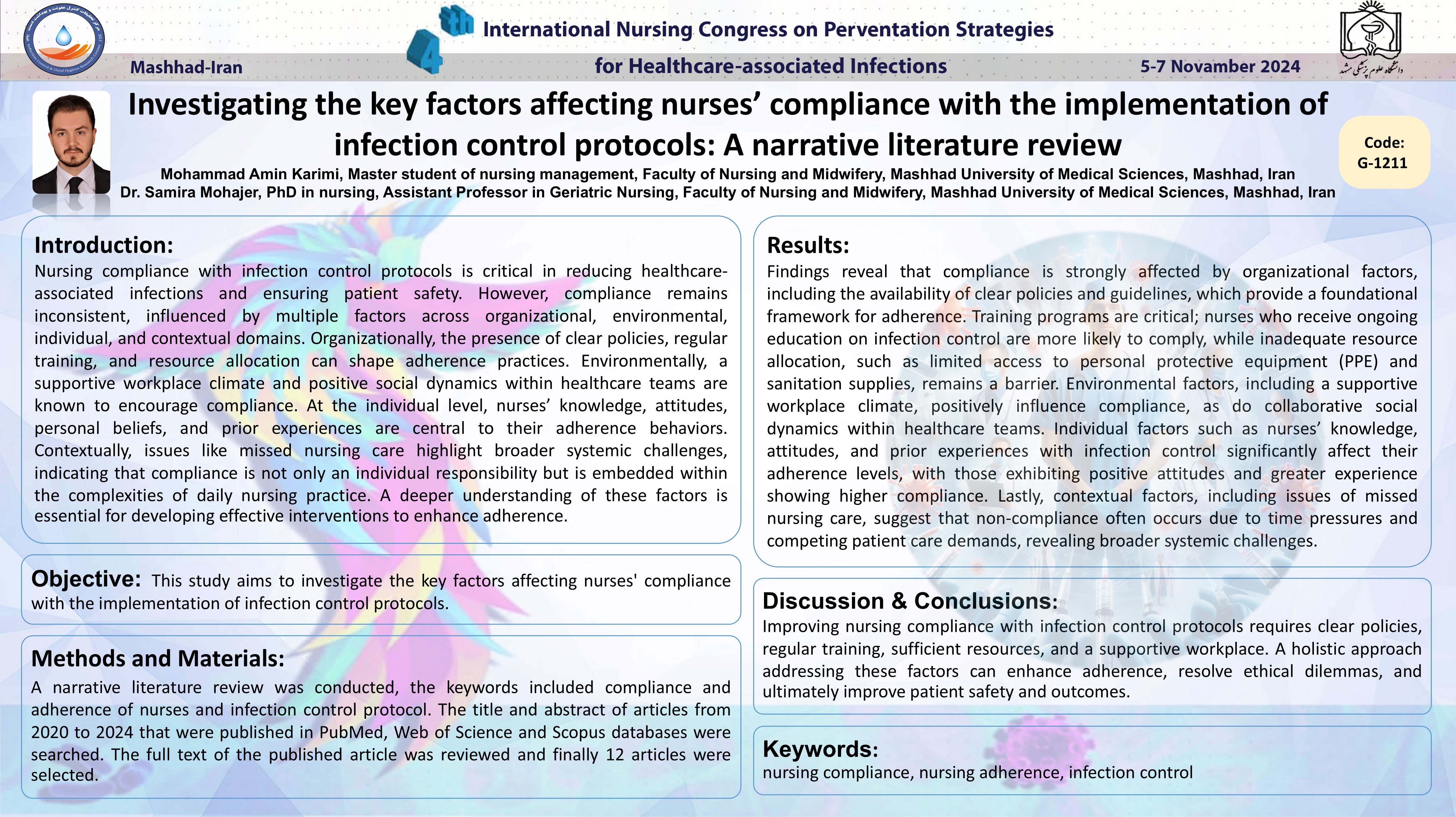بررسی عوامل کلیدی موثر بر انطباق پرستاران با اجرای پروتکل های کنترل عفونت: یک مرور متون روایی
کد: G-1211
نویسندگان: Mohammad Amin Karimi © ℗, Dr. Samira Mohajer
زمان بندی: زمان بندی نشده!
دانلود: دانلود پوستر
خلاصه مقاله:
خلاصه مقاله
Background: Healthcare-associated infections present a significant risk to patient safety, underscoring the critical need for consistent compliance with infection control protocols among nursing staff. However, adherence levels remain inconsistent, shaped by factors across organizational, environmental, individual, and contextual domains. Organizational influences, such as clear policies, regular training, and resource allocation, are foundational to supporting compliance, while a positive workplace climate and strong team dynamics foster adherence at the environmental level. Individually, nurses' knowledge, attitudes, beliefs, and experience impact adherence, and, contextually, systemic issues like missed nursing care further complicate compliance. Recognizing these multifaceted influences is essential for designing effective interventions to improve protocol adherence. Objective: This study aims to investigate the key factors affecting nurses' compliance with the implementation of infection control protocols. Method: A narrative literature review was conducted, the keywords included compliance and adherence of nurses and infection control protocol. Title and abstract of articles from 2020 to 2024 that were published in PubMed, Web of Science, and Scopus databases were searched. The full text of the published articles was reviewed and Based on quality check evaluation & scoring by two authors finally 16 articles were selected. Result: Findings reveal that organizational factors strongly affect compliance, including the availability of clear policies and guidelines, which provide a foundational framework for adherence. Training programs are critical; nurses who receive ongoing education on infection control are more likely to comply. Environmental factors, including supportive workplace climate, positively influence compliance, as do collaborative social dynamics within healthcare teams. Individual factors such as nurses’ knowledge, attitudes, and prior experiences with infection control significantly affect their adherence levels, with those exhibiting positive attitudes and greater experience showing higher compliance. Lastly, contextual factors, including issues of missed nursing care, suggest that non-compliance often occurs due to time pressures and competing patient care demands, revealing broader systemic challenges. Conclusion: Improving nursing compliance with infection control protocols requires clear policies, regular training, sufficient resources, and a supportive workplace. A holistic approach addressing these factors can enhance adherence, resolve ethical dilemmas, and ultimately improve patient safety and outcomes.
کلمات کلیدی
nursing compliance, nursing adherence, infection control
